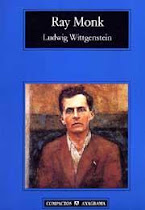

His family simply hired the Musikverein for him and filled its seats with servants and hanger-ons.

The focus of this family biography is not on him, though, but on his slightly older brother Paul.Paul Wittgenstein was a talented amateur pianist whose wealth allowed him to bypass the usual gatekeepers. Their madness was not without a spark of genius: Ludwig Wittgenstein's appeal for silence can be interpreted as a means to keep the Freudian demons in check.

Their money made the rest of humanity tolerate their ill-behavior and bad manners. Only in music could they communicate and play together. Led by a despotic tycoon, the family members made each other's lives a living hell, three of the five sons ended their life by suicide. Read moreįriedrich Torberg loved to tell the anecdote about two boys in Prague who approach the two rich daughters from behind, look at their faces and, having passed them, exclaim: "God is just!" Similarly, all the wealth of the Wittgenstein family could not buy them happiness. In this dramatic historical and psychological epic, Alexander Waugh traces the triumphs and vicissitudes of a family held together by a fanatical love of music yet torn apart by money, madness, conflicts of loyalty and the cataclysmic upheaval of two world wars. Three of his sons committed suicide Paul, the fourth, became a world-famous concert pianist (using only his left hand), while Ludwig, the youngest, is now regarded as one of the greatest philosophers of the twentieth century. The domineering paternal influence of Karl Wittgenstein left his eight children fraught by inner antagonisms and nervous tension. The Wittgenstein family was one of the richest, most talented and most eccentric in European history. The true story of a one-handed pianist and the fall of his aristocratic family His writing is brisk, confident and colourful. 'The story in this book is so gripping and fascinating that it is remarkable that it has never been told in this way before' Simon Heffer, Literary Review


 0 kommentar(er)
0 kommentar(er)
